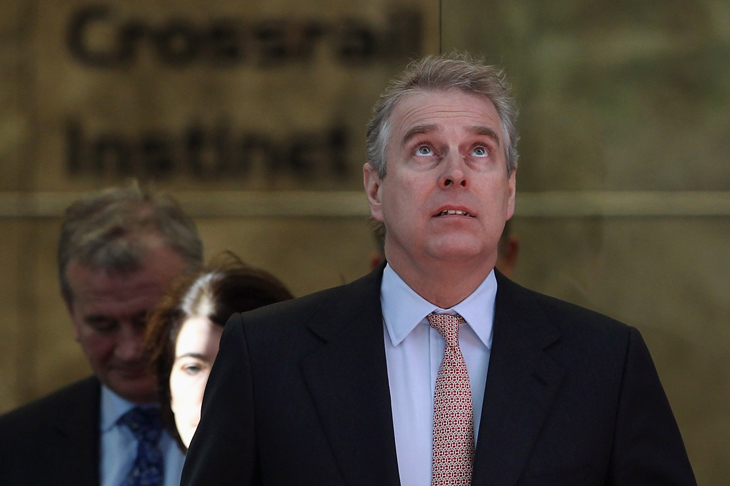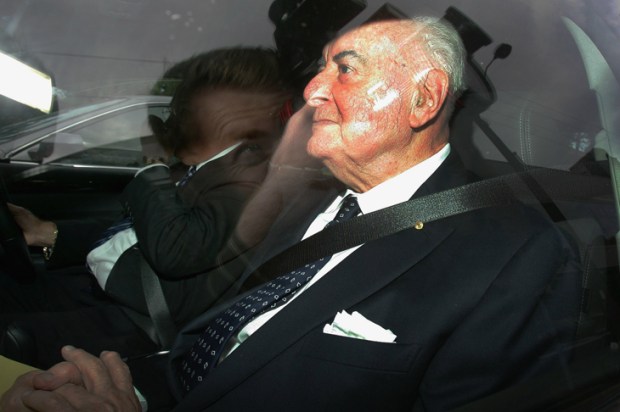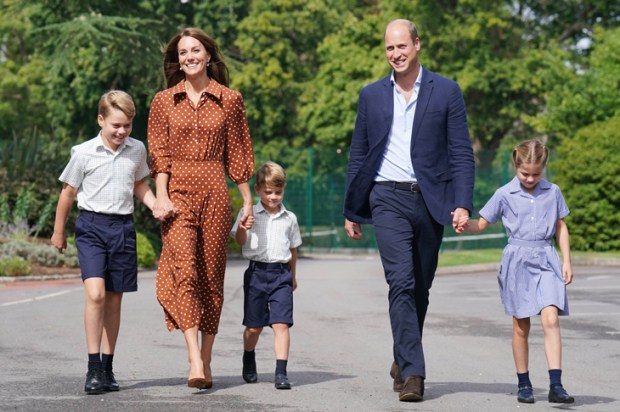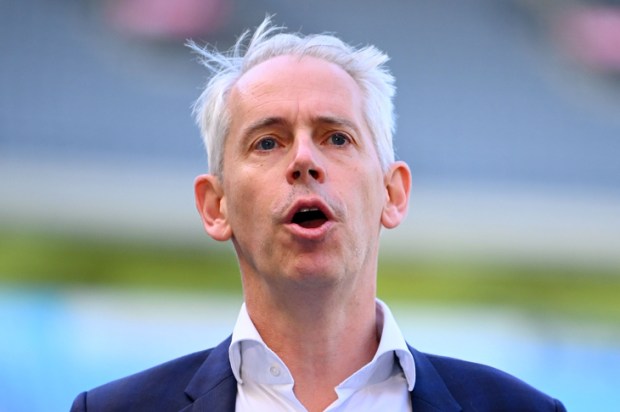In this year’s Star Chamber trial by media, Prince Andrew has been found guilty with instructions to with- draw from public life, even abandoning his charities. If they can do this to the Duke of York, nobody is safe.
The plain fact is no prosecution is foreshadowed against the Prince, nor any grand jury empanelled. Instead, the mainstream media relent- lessly promotes the demand of a hither- to unknown attorney that Prince Andrew ‘come clean’, shorthand for making his job of extracting vast sums of money even easier than the US civil justice system does. There, astronomically large, and often baseless, civil claims are encour- aged by the legitimisation of the former- ly unethical practice of lawyers taking a large percentage of damages recovered. In addition, the elementary rule that a losing plaintiff pay the defendant’s rea- sonable costs has been dropped. Ambu- lance-chasing attorneys can assure plain- tiffs their claim will be free of any risk. So, however innocent he may be, an unfortu- nate defendant is invariably advised to settle. Until the advent of Stormy Dan- iels, treacherously aided by Mr. Trump’s attorney, that at least would be the end of it. On the basis of this, the commen- tariat are now demanding Prince Andrew admit the truth of every claim even before a civil writ is taken out. After all, isn’t he not only white, male and heterosexual, but a member of the Royal Family?
With the advent of the #MeToo movement, the media- endorsed trend has been that victims (never ‘alleged’ victims) are to be believed. If they want it, they should remain anonymous and protected against ‘unfair’ (that is effective) cross-examina- tion. In some jurisdictions this can even mean that evidence of there being a pat- tern of previous confected allegations cannot be introduced. That trend is even now reversing the ancient rule that the prosecution prove its case beyond reasonable doubt. This is being replaced by the rule that a ‘credible’ victim must always be believed even if her, or indeed his evidence is uncorroborated. It mat- ters not that there is a veritable mountain of conflicting evidence, once considered more than adequate to shriek ‘reasona- ble doubt’ from the rooftops. Nor does it matter that there are glaring inconsisten- cies in the victim’s evidence; this is only to be expected from the stress of the assault. How do we know that? An ‘expert’ psychologist will no doubt be on tap to say so. Nor does the jury even have to see the witness in the box; a video is sufficient.
To the mainstream media, PrinceAndrew’s guilt can be demonstrated by association. He has been seen with and photographed with the lateJeffrey Epstein. So have vast numbers of the well-known, including those whom the American mainstream media and the establishment have decreed are immune from criminal prosecution, such as, it seems, anyone from the Clinton family. In the careful opinion of the commentariat, the case is closed unless and until Prince Andrew can prove, beyond any soupçon of doubt in any one of their minds, that he is innocent.
So who is Prince Andrew? The second of the Queen’s sons, he is now a distant eighth in line of succession.Educated at tough, character-building Gordonstoun School, he enrolled at the Royal Naval College at Dartmouth after which he joined the Royal Navy. When the Argentinian dictators invaded the Falklands, Prince Andrew resisted government attempts to take him offHMS Invincible. His service, including that as a fighter pilot during his naval career, was exemplary. And unlike most of his critics, he has been prepared to risk his life in serving the nation. He was targeted by the fascist Argentinian media who dismissed him as an effete prince. On retirement, he decided not to live a life of leisure, on an annuity paid by the Queen and not the taxpayer, taking up an unpaid position as Special Representative in Trade and Investment. (Incidentally, the media constantly push the fake news that the UK taxpayers maintain the Royals. They don’t. The monarchy is basically self-funded.) While it was impossible for elements within the British press to find fault with his military service; they soon did so in this new role.
Trade representatives obviouslyhave to meet and deal with the representatives of somewhat unsavoury regimes. Why? Unless there are sanctions, trade makes no distinction between governments. The tabloids decided that unlike every other trade minister or diplomat, it was wrong for Prince Andrew to do his job well and fraternise with all and sundry. Although successful, the publicity was deemed bad for the monarchy. Eventually, he was forced to stand down.
The Prince’s views are rarely heard, but on one significant occasion he hit the nail on the head. He rightly criticised the disastrous American occupation of Iraq (not the war), suggesting they could have learnt from the British, and ruled through existing institutions. The Americans sacked those who belonged to the ruling party, although this is typically compulsory under a dictatorship. Then they dissolved the army, foolishly releasing vast numbers of armed and disgruntled soldiers into the community. The predictable result was a disaster. Andrew was right.
So what should Andrew do now? He is as entitled as anybody else to insist on his innocence. He could follow US lawyer Alan Dershowitz, who has also been named, and take out a defamation writ. But not in the US, where activist judges have misinterpreted the Constitution so that there is an open slather against public figures. He could follow the First Lady and sue in the UK. This is not recommended; defamation cases can consume the life of a plaintiff, even a successful one. As the average Australian might say, it’s about time a courageous man prepared to die for his country was accorded the fair go every citizen is entitled to expect.
Got something to add? Join the discussion and comment below.
Get 10 issues for just $10
Subscribe to The Spectator Australia today for the next 10 magazine issues, plus full online access, for just $10.
You might disagree with half of it, but you’ll enjoy reading all of it. Try your first month for free, then just $2 a week for the remainder of your first year.














Comments
Don't miss out
Join the conversation with other Spectator Australia readers. Subscribe to leave a comment.
SUBSCRIBEAlready a subscriber? Log in